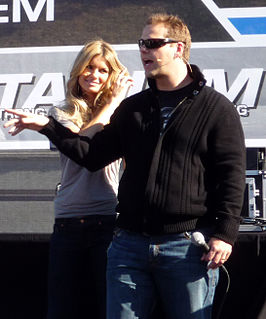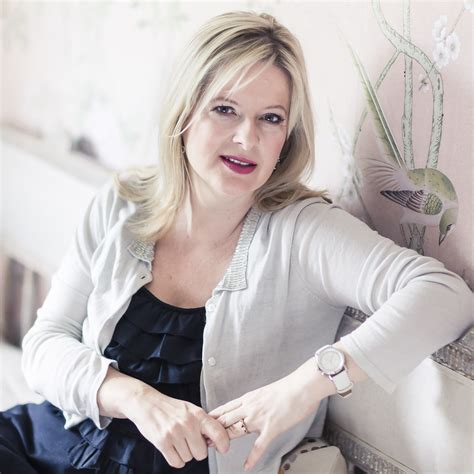A Quote by Khaled Hosseini
I'm sorry," Laila says, marveling at how every Afghan story is marked by death and loss and unimaginable grief. And yet, she sees, people find a way to survive, to go on.
Related Quotes
But Laila has decided that she will not be crippled by resentment. Mariam wouldn’t want it that way. ‘What’s the sense?’ she would say with a smile both innocent and wise. ‘What good is it, Laila jo?’ And so Laila has resigned herself to moving on. For her own sake, for Tariq’s, for her children’s. And for Mariam, who still visits Laila in her dreams, who is never more than a breath or two below her consciousness. Laila has moved on. Because in the end she knows that’s all she can do. That and hope.
I always encourage people who had a loss of any kind that you find something to focus on that takes you out of that horrific sorrow. And you have to go through it. No way out but through in the grief. But don't remain in the grief. You know, find something that you can nurture as you would that being that you loved.
I do a lot of work in travel and tourism, and I think this story is in the book. This woman is in a hammock, and she's got the beach below her and the sky above her, and the ocean beyond her. She's relaxing. She's got a drink in her hand and a book. Every woman sees this picture and says, I want to be in that hammock. Every guy sees the picture and says, I want to be in that hammock with that woman. It works for everybody.
The way we deny death says something about how we live our lives, doesn't it? At least in Sweden or Scandinavia, you don't have to search further back in time than maybe three generations to find another way to relate to death. People then had a different, closer relationship with death; at least it was like that in the countryside.
When I am introduced as someone from New Orleans, people sometimes say: "I'm so sorry." New Orleans. I'm so sorry. That's not the way it was before,not the way it's supposed to be. When people find out you're from New Orleans, they're supposed to tell you about how they got drunk there once, or fell in love there, or first heard the music there that changed their lives. At worst people would say: "I've always wanted to go there." But now, it's just: "I'm sorry." Man, that kills me. That just kills me.
The first theft marked Buck as fit to survive in the hostile Northland environment. It marked his adaptability, his capacity to adjust himself to changing conditions, the lack of which would have meant swift and terrible death. It marked, further, the decay or going to pieces of his moral nature, a vain thing and a handicap in the ruthless struggle for existence.
Onyx is angry," Damian says. "Onyx has a right to be angry. You've got to remember, for many elephants, their life is that of a human in a war-torn country. Ravaged homes, killed relatives, separation," Damian says. Here's another thing I've learned over two months--every elephants here has a sad story. Every captive elephant's story is one of loss and separation. Something to remember every time you see happy people getting elephant rides.
Grief is real because loss is real. Each grief has its own imprint, as distinctive and as unique as the person we lost. The pain of loss is so intense, so heartbreaking, because in loving we deeply connect with another human being, and grief is the reflection of the connection that has been lost. We think we want to avoid the grief, but really it is the pain of the loss we want to avoid. Grief is the healing process that ultimately brings us comfort in our pain.





































